Introduction
This section of the document serves as an introductory portion and sets the stage for the discussion on creating a successful SEO campaign. It typically provides readers with an overview of what to expect from the rest of the content.
Definition of SEO Campaign
In this sub-section, the document will likely define what an “SEO campaign” is. An SEO campaign is a planned and organized series of activities aimed at improving a website’s visibility on search engine result pages (SERPs) and driving organic traffic.
Importance of SEO Campaigns
This sub-section will likely discuss the significance of SEO campaigns in the digital marketing landscape. It might explain how SEO campaigns can help businesses increase their online presence, reach their target audience, and improve their bottom line.
Purpose of the Guide
Here, the document will clarify the objective of the guide. It may state that the purpose is to provide readers with a comprehensive understanding of how to create a successful SEO campaign. The guide could be intended for beginners looking to get started with SEO campaigns or for experienced marketers seeking to refine their strategies.
Overall, the introduction section of the document is essential for giving readers a context for what follows and is a critical component of any comprehensive guide on SEO campaigns. It ensures that the audience understands the basics of SEO campaigns, their importance, and the goals the guide aims to achieve.
Pre-Campaign Preparation
In this section, the focus is on preparing for a successful SEO campaign, which is essential for improving a website’s visibility on search engines and driving organic traffic.
Market Research
Market research is the foundation of any effective SEO campaign. It involves gaining a deep understanding of the online landscape relevant to your business or website. This understanding allows you to make informed decisions about how to position your website and content to achieve optimal results. Here are the key components of market research in the context of an SEO campaign:
- Identifying Target Audience: Identifying your target audience is a crucial step. You need to determine who your potential customers are, what they are looking for, and how they search for products or services. This involves creating detailed buyer personas, understanding their demographics, interests, and pain points. You’ll want to know where they spend time online and the keywords they use in search queries.
- Analyzing Competitors: Competitor analysis is equally important. By studying your competitors, you can gain insights into what strategies are working in your industry. This involves identifying your top competitors, analyzing their website content, backlink profiles, and SEO strategies. Understanding what they are doing well and where they might be lacking can help you formulate a strategy that outperforms them.
Keyword Research
Keyword research is a fundamental aspect of SEO. It involves identifying the specific search terms (keywords) that your target audience is using when searching for products, services, or information relevant to your website. Effective keyword research is critical for optimizing your content and website for search engines. Here’s a breakdown of the key elements of keyword research:
Keyword Selection: Choose keywords that are not only relevant to your content or business but also have a reasonable search volume. Look for keywords with a balance between competitiveness and search traffic. Long-tail keywords (more specific, longer phrases) are often valuable because they can bring in highly targeted traffic.
Competitiveness Analysis: Assess the level of competition for each keyword. Highly competitive keywords may be challenging to rank for, especially if your website is new or has a lower domain authority. It’s often more effective to target a mix of competitive and less competitive keywords.
Keyword Mapping: Once you’ve identified your target keywords, map them to specific pages or content on your website. Each page should focus on a particular keyword or set of related keywords, ensuring that your content is highly relevant to users’ search intent.
User Intent: Understand the intent behind each keyword. Some keywords signal a user’s intention to buy, while others indicate a desire for information or research. Tailor your content to match the user’s intent.
The Pre-Campaign Preparation phase of creating a successful SEO campaign involves conducting thorough market research to identify your target audience and analyze competitors. Simultaneously, keyword research helps you select the right keywords, assess their competitiveness, map them to specific webpages, and align your content with user intent. These critical steps lay the groundwork for an effective and strategic SEO campaign that can improve your website’s search engine visibility and drive organic traffic.
Website Audit
Conducting a comprehensive audit of your website is essential to identify areas for improvement.
- Technical SEO: This aspect focuses on the technical aspects of your website, such as site speed, mobile-friendliness, URL structure, and the presence of technical errors. Addressing technical SEO issues ensures that your site is user-friendly and search engine-friendly.
- On-Page SEO: On-page SEO involves optimizing individual pages on your website. This includes optimizing meta titles and descriptions, headers, content, and ensuring that the content is relevant and valuable to both users and search engines.
- Off-Page SEO: Off-page SEO refers to activities that take place outside your website but have an impact on your search engine rankings. This includes building high-quality backlinks from authoritative websites, establishing a strong social media presence, and managing your online reputation.
In summary, the “Pre-Campaign Preparation” phase of creating a successful SEO campaign involves in-depth research, including understanding your target audience and analyzing competitors. It also involves meticulous keyword research and optimizing your website’s technical, on-page, and off-page SEO elements. These steps set the stage for a well-informed and strategic SEO campaign, increasing the likelihood of achieving your desired results.
Certainly, let’s break down the paragraph titled “Creating a Successful SEO Campaign” with a focus on the keyword “SEO Campaign.” This section outlines the initial steps involved in planning and executing an effective SEO (Search Engine Optimization) campaign.
Planning Your SEO Campaign
Setting Goals and Objectives
In any SEO campaign, the first step is to set clear and specific goals and objectives. These goals should be aligned with your overall business objectives and should be measurable. For example, your goal might be to increase website traffic by 30% in the next six months.
Establishing Key Performance Indicators
To measure the success of your SEO campaign, you need to establish Key Performance Indicators (KPIs). KPIs are specific metrics that allow you to track and evaluate progress. For instance, KPIs might include organic search traffic, keyword rankings, and conversion rates.
Creating a Content Strategy
Content is a fundamental aspect of SEO. Your content strategy should focus on creating high-quality, relevant, and engaging content that appeals to your target audience. This content can include blog posts, articles, videos, infographics, and more.
On-Page Optimization
On-page optimization involves making improvements to your website’s individual pages to make them more search engine-friendly. This includes optimizing meta tags, headers, and content for relevant keywords, ensuring proper site structure, and enhancing the user experience.
Off-Page Optimization
Off-page optimization activities are those that take place outside of your website and focus on building your online presence and authority.
Link Building Strategies– Link building involves acquiring high-quality backlinks from other reputable websites. These backlinks signal to search engines that your content is valuable and relevant. Various strategies can be used to build backlinks, including guest posting, outreach, and content partnerships.
Social Media Engagement– Social media is an integral part of off-page optimization. Engaging with your audience on social platforms not only helps in promoting your content but can also drive traffic back to your website. Social signals, such as likes, shares, and comments, can indirectly influence search engine rankings.
In summary, Creating a Successful SEO Campaign involves a strategic approach to improving your website’s visibility on search engines like Google. It starts with setting clear goals and KPIs, creating valuable content, optimizing on-page elements, and executing off-page strategies like link building and social media engagement. A well-planned and executed SEO campaign can lead to increased organic traffic, better search engine rankings, and ultimately, more business success.
The paragraph you provided is part of a document or article titled “Creating a Successful SEO Campaign.” It discusses the various components involved in implementing an SEO campaign. The focus keyword is “SEO Campaign,” which suggests that the paragraph discusses the key elements or steps required to make an SEO campaign successful. Let’s break down the paragraph and its elements in detail:
Implementation
Content Creation and Optimization
- Content Creation: Content is a critical component of any SEO campaign. This involves creating high-quality, relevant content that matches the interests and needs of your target audience. Content can take various forms, such as blog posts, articles, videos, infographics, or product descriptions.
- Content Optimization: This step involves optimizing your content for search engines. You need to include relevant keywords, meta tags, and other SEO elements to ensure that your content is easily discoverable by search engines like Google.
Technical SEO Implementation
Technical SEO focuses on the technical aspects of your website that affect its search engine rankings. This includes:
- Site Structure: Ensuring that your website has a logical and user-friendly structure is important for SEO. It should be easy for search engines to crawl and index your pages.
- Page Speed: Faster-loading websites tend to rank better in search results. Optimizing your site for speed is a technical aspect of SEO.
- Mobile-Friendliness: With the increasing use of mobile devices, it’s crucial that your website is responsive and mobile-friendly to provide a good user experience, which can impact your SEO rankings.
- Crawlability and Indexability: Ensuring that search engine bots can easily crawl and index your website’s pages is essential for SEO success.
Local SEO
Local SEO is particularly important for businesses that serve a local or regional market. It involves optimizing your online presence to show up in local search results. Local SEO activities might include:
- Google My Business Optimization: Claiming and optimizing your Google My Business listing to improve local visibility.
- Local Citations: Ensuring that your business information is consistent across various online directories and platforms.
- Customer Reviews: Encouraging and managing customer reviews on platforms like Yelp and TripAdvisor.
Mobile Optimization
This point likely reiterates the importance of ensuring that your website is optimized for mobile devices, as mentioned earlier in the “Technical SEO Implementation” section.
Backlink Building
Backlinks, or inbound links from other websites to your site, are an essential part of SEO. Building high-quality backlinks from reputable websites can improve your website’s authority and search engine rankings. Backlink building activities may include:
- Outreach: Reaching out to other websites and requesting backlinks.
- Content Promotion: Creating valuable content that naturally attracts backlinks from other websites.
- Guest Posting: Writing articles for other websites with a link back to your site.
In summary, the paragraph provides an overview of the implementation phase of an SEO campaign, emphasizing the importance of content creation, technical SEO, local SEO (if relevant), mobile optimization, and backlink building. These are key elements that, when executed effectively, can contribute to the success of an SEO campaign by improving your website’s visibility in search engine results pages and driving organic traffic.
Certainly! The paragraph you provided is part of a section on “Monitoring and Analytics” within a document or article titled “Creating a Successful SEO Campaign.” The focus keyword for this section is “SEO Campaign,” indicating that the content is discussing the monitoring and analytics aspect of an SEO campaign.
Monitoring and Analytics
Tracking Progress with Tools
This subsection under “Monitoring and Analytics” emphasizes the use of tools to track the progress of your SEO campaign. In the context of SEO, these tools might include website analytics platforms, keyword tracking software, and other data-driven tools. The goal is to measure and monitor various metrics to understand how well your SEO campaign is performing.
Google Analytics and Google Search Console
This part specifically mentions two important tools for SEO monitoring:
Google Analytics: Google Analytics is a free web analytics service provided by Google. It allows website owners to track and analyze various aspects of their website’s performance, such as traffic, user behavior, and conversion rates. This data is invaluable for understanding how users are interacting with your website.
Google Search Console: Google Search Console, also provided by Google, is a tool that helps website owners monitor their website’s presence in Google’s search results. It provides information about how Google crawls and indexes your site, the keywords for which your site is ranking, and any issues that might affect your site’s visibility in search results.
Both of these tools are fundamental for tracking and optimizing the performance of your website in Google’s search results, making them vital components of an SEO campaign.
Adjusting the Campaign Based on Data
This part highlights the importance of using the data collected from tools like Google Analytics and Google Search Console to make informed decisions. In an SEO campaign, data-driven decision-making is key to success. When you analyze the data, you can identify trends, weaknesses, and strengths in your campaign. This information can then be used to adjust your SEO strategy. For example, if you notice that certain keywords are performing well, you can focus more on optimizing content around those keywords. If you find technical issues that hinder your site’s performance in search results, you can take steps to resolve them.
In summary, this paragraph discusses the crucial role of monitoring and analytics in the context of an SEO campaign. It emphasizes the use of tools like Google Analytics and Google Search Console to track and analyze data, and the subsequent adjustment of the campaign based on the insights gained from that data. This process is essential for creating and maintaining a successful SEO campaign.
Conclusion
In the fast-paced world of digital marketing, SEO campaigns are the driving force behind online success. They require meticulous planning, continuous effort, and a keen eye for adaptation. By following the strategies and best practices outlined in this guide, you can embark on a journey to unlock your website’s full potential in the digital realm.
At RK Media Digital Marketing Agency, we specialize in creating and executing SEO campaigns that deliver tangible results. If you’re looking for a partner to guide you on your SEO journey, get in touch with us today. SEO campaigns are our passion, and your success is our mission.
Image Reference: Freepik
Disclaimer: All trademarks, logos, and brand names are the property of their respective owners. All company, product, and service names used in this website are for identification purposes only. Use of these names, trademarks, and brands does not imply endorsement.





















